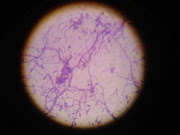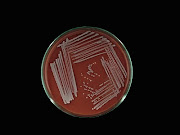(1) Research Laboratory for Agricultural Biotechnology and Biochemistry (RLABB), Universal Science College, Maitidevi, Kathmandu, Nepal;
(2) Central Department of Microbiology, Tribhuvan University, Kirtipur, Nepal
* Corresponding author: gyan633413@gmail.com
ABSTRACT
A random amplified polymorphic DNA fingerprinting assay has been optimized that discriminate different B. thuringiensis isolates. Random amplification of polymorphic DNA (RAPD) is proving to be a useful technique used for screening diversity, particularly at intraspecific levels, including many population studies. Relationships between species' may be determined by comparing their unique fingerprint information, which are expected to be identical among related species. The technique can be troublesome and time consuming to establish due the essentially empirical approach to optimization. By standardization of certain parameters and use of a commercially available PCR buffer, a particularly promising primer was identified and a RAPD condition for a highly discriminatory and reproducible characterization of B. thuringiensis isolates was achieved. In addition, a technique to obtain reproducible RAPD fingerprints of B. thuringiensis without the need to purify genomic DNA described.






















0 comments:
Post a Comment